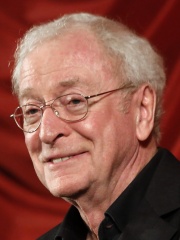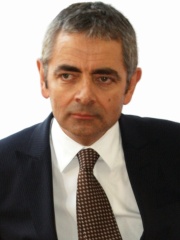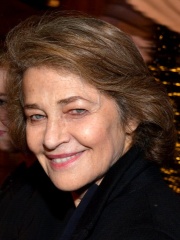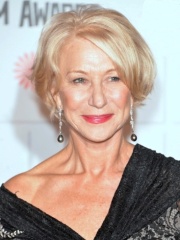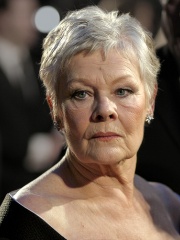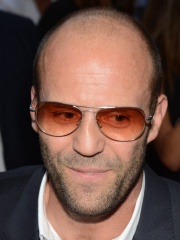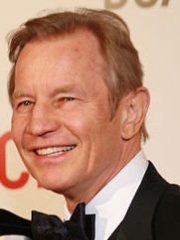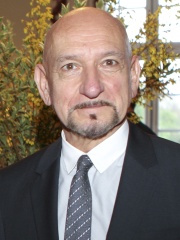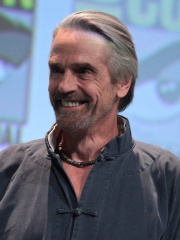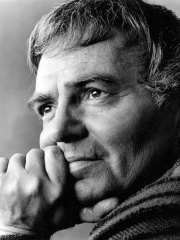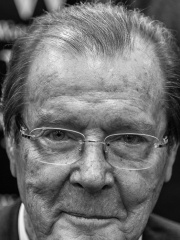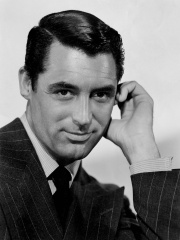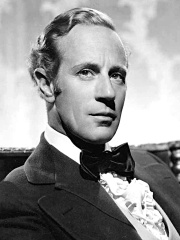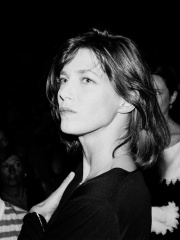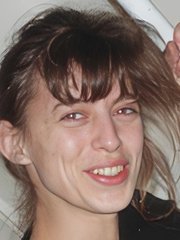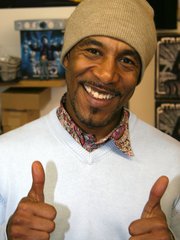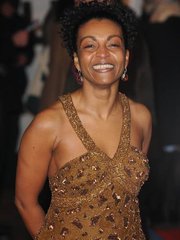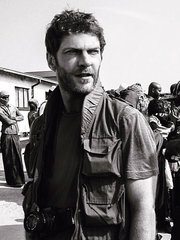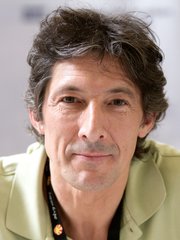

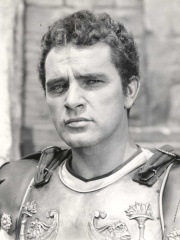
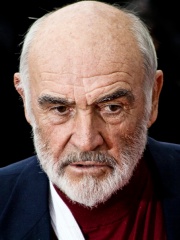
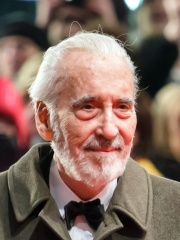
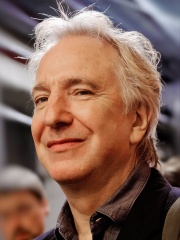
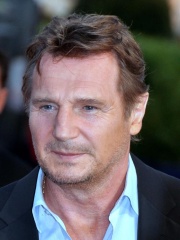
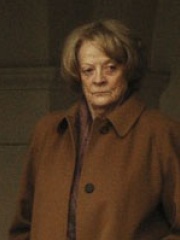
The Most Famous
ACTORS from United Kingdom
This page contains a list of the greatest British Actors. The pantheon dataset contains 13,578 Actors, 1,599 of which were born in United Kingdom. This makes United Kingdom the birth place of the 2nd most number of Actors.
Top 10
The following people are considered by Pantheon to be the top 10 most legendary British Actors of all time. This list of famous British Actors is sorted by HPI (Historical Popularity Index), a metric that aggregates information on a biography's online popularity. Visit the rankings page to view the entire list of British Actors.

1. Charlie Chaplin (1889 - 1977)
With an HPI of 89.85, Charlie Chaplin is the most famous British Actor. His biography has been translated into 197 different languages on wikipedia.
Sir Charles Spencer Chaplin Jr. (16 April 1889 – 25 December 1977) was an English comic actor, filmmaker, and composer who rose to fame in the era of silent film. He became a worldwide icon through his screen persona, the Tramp, and is considered one of the film industry's most important figures. His career spanned more than 75 years, from his childhood in the Victorian era until a year before his death in 1977, and encompassed both accolade and controversy. Chaplin's childhood in London was one of poverty and hardship. His father was absent and his mother struggled financially – he was sent to a workhouse twice before the age of nine. When he was 14, his mother was committed to a mental asylum. Chaplin began performing at an early age, touring music halls and later working as a stage actor and comedian. At 19, he was signed to the Fred Karno company, which took him to the United States. He was scouted for the film industry and began appearing in 1914 for Keystone Studios. He soon introduced and adopted the Tramp as his screen persona. He directed his own films and continued to hone his craft as he moved to Essanay Studios, where the Tramp persona was developed emotionally in The Tramp (1915). He then attracted a large fanbase and demanded more money as he moved to Mutual and First National corporations. By 1918, he was one of the world's best-paid and best-known figures. In 1919, Chaplin co-founded the distribution company United Artists, which gave him complete control over his films. His first feature-length film was The Kid (1921), followed by A Woman of Paris (1923), The Gold Rush (1925), and The Circus (1928). He initially refused to move to sound films in the 1930s, instead producing City Lights (1931) and Modern Times (1936) without dialogue. His first sound film was The Great Dictator (1940), which satirised Adolf Hitler. The 1940s were marked with controversy for Chaplin, and his popularity declined rapidly. He was accused of communist sympathies, and some members of the press and public were scandalised by his involvement in a paternity suit and marriages to much younger women. An FBI investigation was opened, and Chaplin was forced to leave the U.S. in 1952 and settle in Switzerland. He abandoned the Tramp in his later films, which include Monsieur Verdoux (1947), Limelight (1952), A King in New York (1957), and A Countess from Hong Kong (1967). Chaplin wrote, directed, produced, edited, and composed the music for most of his films. He was a perfectionist, and his financial independence enabled him to spend years on the development and production of a picture. His films are characterised by slapstick combined with pathos, typified in the Tramp's struggles against adversity. Many contain social and political themes, as well as autobiographical elements. He received an Honorary Academy Award for "the incalculable effect he has had in making motion pictures the art form of this century" in 1972, as part of a renewed appreciation for his work. He continues to be held in high regard, with The Gold Rush, City Lights, Modern Times, and The Great Dictator often ranked on lists of the greatest films.

2. Anthony Hopkins (b. 1937)
With an HPI of 83.87, Anthony Hopkins is the 2nd most famous British Actor. His biography has been translated into 104 different languages.
Sir Philip Anthony Hopkins (born 31 December 1937) is a Welsh actor. Considered one of Britain's most recognisable and prolific actors, he is known for his performances on the screen and stage. Hopkins has received numerous accolades, including two Academy Awards, four BAFTA Awards, two Primetime Emmy Awards, and a Laurence Olivier Award. He has also received the Cecil B. DeMille Award in 2005 and the BAFTA Fellowship for lifetime achievement in 2008. He was knighted by Queen Elizabeth II for his services to drama in 1993. After graduating from the Royal Welsh College of Music & Drama in 1957, Hopkins trained at RADA (the Royal Academy of Dramatic Art) in London. He was then spotted by Laurence Olivier, who invited him to join the Royal National Theatre in 1965. Productions at the National included King Lear (his favourite Shakespeare play), Coriolanus, Macbeth, and Antony and Cleopatra. In 1985, he received acclaim and a Laurence Olivier Award for his performance in the David Hare play Pravda. His last stage play was a West End production of M. Butterfly in 1989. Hopkins's early film roles include The Lion in Winter (1968), A Bridge Too Far (1977), Magic (1978), and The Elephant Man (1980). He won two Academy Awards for Best Actor for playing Hannibal Lecter in the horror thriller The Silence of the Lambs (1991) and an octogenarian with dementia in the psychological drama The Father (2020). He was also Oscar-nominated for The Remains of the Day (1993), Nixon (1995), Amistad (1997), and The Two Popes (2019). Other notable films include 84 Charing Cross Road (1987), Howards End (1992), Bram Stoker's Dracula (1992), Shadowlands (1993), Legends of the Fall (1994), The Mask of Zorro (1998), and the Marvel Cinematic Universe films (2011–2017). For his work on television, Hopkins received a British Academy Television Award for Best Actor for his performance in War and Peace (1972). He won two Primetime Emmy Awards for Outstanding Lead Actor in a Limited or Anthology Series or Movie for The Lindbergh Kidnapping Case (1976) and The Bunker (1981). Other notable projects include the BBC film The Dresser (2015), PBS' King Lear (2018), and the HBO series Westworld (2016–2018).

3. Richard Burton (1925 - 1984)
With an HPI of 81.95, Richard Burton is the 3rd most famous British Actor. His biography has been translated into 74 different languages.
Richard Walter Burton (; born Richard Walter Jenkins Jr.; 10 November 1925 – 5 August 1984) was a Welsh actor. Noted for his mellifluous baritone voice, Burton established himself as a formidable Shakespearean actor in the 1950s and gave a memorable performance as Hamlet in 1964. He was called "the natural successor to Olivier" by critic Kenneth Tynan. Burton's perceived failure to live up to those expectations disappointed some critics and colleagues; his heavy drinking added to his reputation as a great performer who had wasted his talent. Nevertheless, he is widely regarded as one of the finest actors of his generation. Burton was nominated for an Academy Award seven times but never won. He was nominated for his performances in My Cousin Rachel (1952), The Robe (1953), Becket (1964), The Spy Who Came In from the Cold (1965), Who's Afraid of Virginia Woolf? (1966), Anne of the Thousand Days (1969) and Equus (1977). He received numerous accolades, including a BAFTA Award, a Golden Globe Award and a Grammy Award. He received the Tony Award for Best Actor in a Musical for his portrayal of King Arthur in the Lerner and Loewe musical Camelot (1960). In the mid-1960s, Burton became a top box-office star. By the late 1960s, he was one of the highest-paid actors in the world, receiving fees of $1 million or more plus a share of the gross receipts. Burton remained closely associated in the public mind with his second wife, Elizabeth Taylor. The couple's turbulent relationship, married twice and divorced twice, was rarely out of the news.

4. Sean Connery (1930 - 2020)
With an HPI of 81.18, Sean Connery is the 4th most famous British Actor. His biography has been translated into 125 different languages.
Sir Thomas Sean Connery (25 August 1930 – 31 October 2020) was a Scottish actor. He was the first actor to portray the fictional British secret agent James Bond in motion pictures, starring in seven Bond films between 1962 and 1983. Connery originated the role in Dr. No (1962) and continued starring as Bond in the Eon Productions films From Russia with Love (1963), Goldfinger (1964), Thunderball (1965), You Only Live Twice (1967) and Diamonds Are Forever (1971). Connery made his final appearance in the franchise in Never Say Never Again (1983), a non-Eon-produced Bond film. Connery is also known for his work with directors such as Alfred Hitchcock, Sidney Lumet and John Huston. Their films in which Connery appeared included Marnie (1964), The Hill (1965), The Offence (1973), Murder on the Orient Express (1974) and The Man Who Would Be King (1975). He also acted in Robin and Marian (1976), A Bridge Too Far (1977), Time Bandits (1981), Highlander, The Name of the Rose (both 1986), Indiana Jones and the Last Crusade (1989), The Hunt for Red October (1990), Dragonheart, The Rock (both 1996) and Finding Forrester (2000). His final on-screen role was as Allan Quatermain in The League of Extraordinary Gentlemen (2003). Connery received numerous accolades. For his role in The Untouchables (1987), he received the Academy Award for Best Supporting Actor (making him the first Scottish actor to win a major Oscar) and the Golden Globe Award for Best Supporting Actor – Motion Picture; and in the same year he received the BAFTA Award for Best Actor in a Leading Role for his role in The Name of the Rose. As producer of Art, he won the Tony Award for Best Play in 1998. He also received honorary awards such as the Cecil B. DeMille Award in 1987, the BAFTA Fellowship in 1998 and the Kennedy Center Honors in 1999. Connery was made a Commander of the Order of Arts and Letters in France and a knight by Queen Elizabeth II for his services to drama in the 2000 New Year Honours.
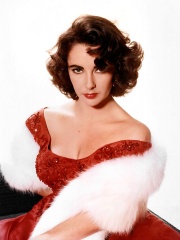
5. Elizabeth Taylor (1932 - 2011)
With an HPI of 80.56, Elizabeth Taylor is the 5th most famous British Actor. Her biography has been translated into 114 different languages.
Dame Elizabeth Rosemond Taylor (February 27, 1932 – March 23, 2011) was a British-American actress. She began her career as a child actress in the early 1940s and was one of the most popular stars of classical Hollywood cinema in the 1950s. She then became the world's highest-paid movie star in the 1960s, remaining a well-known public figure for the rest of her life. In 1999, the American Film Institute ranked her seventh on its greatest female screen legends list. Born in London to socially prominent American parents, Taylor moved with her family to Los Angeles in 1939 at the age of seven. She made her acting debut with a minor role in the Universal Pictures film There's One Born Every Minute (1942), but the studio ended her contract after a year. She was then signed by Metro-Goldwyn-Mayer and became a popular teen star after appearing in National Velvet (1944). She transitioned to mature roles in the 1950s, when she starred in the comedy Father of the Bride (1950) and received critical acclaim for her performance in the drama A Place in the Sun (1951). She starred in the historical adventure epic Ivanhoe (1952) with Robert Taylor and Joan Fontaine. Despite being one of MGM's most bankable stars, Taylor wished to end her career in the early 1950s. She resented the studio's control and disliked many of the films to which she was assigned. She began receiving more enjoyable roles in the mid-1950s, beginning with the epic drama Giant (1956), and starred in several critically and commercially successful films in the following years. These included two film adaptations of plays by Tennessee Williams: Cat on a Hot Tin Roof (1958), and Suddenly, Last Summer (1959); Taylor won a Golden Globe for Best Actress for the latter. Although she disliked her role as a call girl in BUtterfield 8 (1960), her last film for MGM, she won the Academy Award for Best Actress for her performance. During the production of the film Cleopatra in 1961, Taylor and co-star Richard Burton began an extramarital affair, which caused a scandal. Despite public disapproval, they continued their relationship and were married in 1964. Dubbed "Liz and Dick" by the media, they starred in 11 films together, including The V.I.P.s (1963), The Sandpiper (1965), The Taming of the Shrew (1967), and Who's Afraid of Virginia Woolf? (1966). Taylor received the best reviews of her career for Woolf, winning her second Academy Award and several other awards for her performance. She and Burton divorced in 1974 but reconciled soon after, remarrying in 1975. The second marriage ended in divorce in 1976. Taylor's acting career began to decline in the late 1960s, although she continued starring in films until the mid-1970s, after which she focused on supporting the career of her sixth husband, United States Senator John Warner. In the 1980s, she acted in her first substantial stage roles and in several television films and series. She became the second celebrity to launch a perfume brand after Sophia Loren. Taylor was one of the first celebrities to take part in HIV/AIDS activism. She co-founded the American Foundation for AIDS Research in 1985 and the Elizabeth Taylor AIDS Foundation in 1991. From the early 1990s until her death, she dedicated her time to philanthropy, for which she received several accolades, including the Presidential Citizens Medal in 2001. Throughout her career, Taylor's personal life was the subject of constant media attention. She was married eight times to seven men, had four children, converted to Judaism, endured several serious illnesses, and led a jet set lifestyle, including assembling one of the most expensive private collections of jewelry in the world. After many years of ill health, Taylor died from congestive heart failure in 2011, at the age of 79.

6. Christopher Lee (1922 - 2015)
With an HPI of 79.50, Christopher Lee is the 6th most famous British Actor. His biography has been translated into 104 different languages.
Sir Christopher Frank Carandini Lee (27 May 1922 – 7 June 2015) was an English actor and singer. In a career spanning more than sixty years, Lee became known as an actor with tremendous screen presence and a deep and commanding voice who often portrayed villains in horror and franchise films. Lee was knighted for services to drama and charity in June 2009 by King Charles III (when Charles was the Prince of Wales), received the BAFTA Fellowship in 2011 and received the BFI Fellowship in 2013. Lee gained fame for portraying Count Dracula in seven Hammer Horror films. His other film roles include Francisco Scaramanga in the James Bond film The Man with the Golden Gun (1974), Count Dooku in three Star Wars films (2002–2008) and Saruman in both The Lord of the Rings film trilogy (2001–2003) and The Hobbit film trilogy (2012–2014). He frequently appeared opposite his friend Peter Cushing in horror films, and late in his career he had roles in five Tim Burton films, including Sleepy Hollow (1999), Corpse Bride (2005), Charlie and the Chocolate Factory (2005), Alice in Wonderland (2010) and Dark Shadows (2012). Lee's other notable roles include The Curse of Frankenstein (1957), Dracula (1958), A Tale of Two Cities (1958), Castle of the Living Dead (1964), The Wicker Man, (1973), The Return of Captain Invincible (1983), Gremlins 2: The New Batch (1990), Jinnah (1998), Glorious 39 (2009) and Hugo (2011). In addition to his prolific film career, Lee was a classically trained singer with a passion for heavy metal. He recorded several albums, including the symphonic metal concept albums Charlemagne: By the Sword and the Cross (2010) and Charlemagne: The Omens of Death (2013), where he portrayed the title character of Charlemagne. These projects, which included his spoken word, singing, and dramatic narration, were deeply personal artistic endeavours that showcased his distinctive vocal range. Before his acting career, Lee served in the Royal Air Force as an intelligence officer, attached to the No. 260 Squadron RAF during World War II as a liaison officer for the Special Operations Executive. He was discharged from the RAF in 1946 with the rank of flight lieutenant.

7. Alan Rickman (1946 - 2016)
With an HPI of 79.04, Alan Rickman is the 7th most famous British Actor. His biography has been translated into 84 different languages.
Alan Sidney Patrick Rickman (21 February 1946 – 14 January 2016) was an English actor. A graduate of the Royal Academy of Dramatic Art, he is renowned for his stage and screen roles and known for distinctive, deep, languid voice. He received various accolades, including a BAFTA Award, a Golden Globe Award, a Primetime Emmy Award, and a Screen Actors Guild Award, in addition to nominations for two Tony Awards and a Laurence Olivier Award. A member of the Royal Shakespeare Company, Rickman began his career in theatre, performing in classical and modern plays. He was nominated for the Tony Award for Best Lead Actor in a Play for his portrayal of the Vicomte de Valmont in Les Liaisons Dangereuses, and made his film debut as the German criminal mastermind Hans Gruber in Die Hard (1988). He won the BAFTA Award for Best Actor in a Supporting Role for his role as the Sheriff of Nottingham in Robin Hood: Prince of Thieves (1991). He earned critical acclaim for Truly, Madly, Deeply (1991), An Awfully Big Adventure, Sense and Sensibility (both 1995), and Michael Collins (1996). He went on to play Severus Snape in all eight films of the Harry Potter series, beginning with Harry Potter and the Philosopher's Stone (2001) and concluding with Harry Potter and the Deathly Hallows – Part 2 (2011). His other notable film roles include those in Quigley Down Under (1990), Dogma, Galaxy Quest (both 1999), Love Actually (2003), The Hitchhiker's Guide to the Galaxy (2005), Sweeney Todd: The Demon Barber of Fleet Street (2007), Alice in Wonderland (2010), its 2016 sequel, and Eye in the Sky (2015). He directed the films The Winter Guest (1997) and A Little Chaos (2014). Rickman made his television debut playing Tybalt in Romeo and Juliet (1978) as part of the BBC's Shakespeare series. His breakthrough role was Obadiah Slope in the BBC adaptation of The Barchester Chronicles (1982). He later starred in television films, portraying Grigori Rasputin in the HBO film Rasputin: Dark Servant of Destiny (1996), which won him a Primetime Emmy Award, Golden Globe Award, and Screen Actors Guild Award, and played Alfred Blalock in the HBO film Something the Lord Made (2004). In 2009, The Guardian named him one of the best actors never to have received an Academy Award nomination. Rickman died of pancreatic cancer on 14 January 2016, at the age of 69.

8. Liam Neeson (b. 1952)
With an HPI of 78.88, Liam Neeson is the 8th most famous British Actor. His biography has been translated into 87 different languages.
William John Neeson (born 7 June 1952) is an actor from Northern Ireland. He has received several accolades, including nominations for an Academy Award, a BAFTA Award, three Golden Globe Awards, two Tony Awards and one Volpi Cup. With a film career spanning more than forty years, Neeson is regarded as one of Ireland's greatest film actors. Films in which he has appeared have grossed over $11.7 billion worldwide. Neeson was appointed Officer of the Order of the British Empire (OBE) in 2000. Neeson made his film debut in 1978 with Pilgrim's Progress followed by early roles in Excalibur (1981), The Bounty (1984), The Mission (1986), The Dead Pool (1988), and Husbands and Wives (1992). He rose to prominence portraying Oskar Schindler in Steven Spielberg's Holocaust drama Schindler's List (1993) for which he earned an Academy Award for Best Actor nomination. He played leading man roles in drama films such as Nell (1994), Rob Roy (1995), Michael Collins (1996), and Les Misérables (1998). He took blockbuster roles portraying Qui-Gon Jinn in Star Wars: Episode I – The Phantom Menace (1999), Ra's al Ghul in Batman Begins (2005), and Aslan in The Chronicles of Narnia trilogy (2005–2010). Neeson acted in films such as the historical drama Gangs of New York (2002), the romantic comedy Love Actually (2003), the biographical drama Kinsey (2004), the erotic thriller Chloe (2009), the religious drama Silence (2016), the fantasy film A Monster Calls (2016), the crime thriller Widows (2018), the anthology film The Ballad of Buster Scruggs (2018), and the romantic drama Ordinary Love (2019). Beginning in 2008, Neeson cemented himself as an action star with the action thriller series Taken (2008–2014), The A-Team (2010), The Grey (2011), Wrath of the Titans (2012), A Walk Among the Tombstones (2014), and Cold Pursuit (2019). He is known for his collaborations in the genre with the director Jaume Collet-Serra and starred in four of his films: Unknown (2011), Non-Stop (2014), Run All Night (2015), and The Commuter (2018). On stage, Neeson joined the Lyric Players' Theatre in Belfast in 1976 for two years. On Broadway he earned two Tony Award for Best Actor in a Play nominations for his performances as Matt Burke in the revival of Eugene O'Neill's Anna Christie (1992) and John Proctor in the Arthur Miller revival of The Crucible (2002). He portrayed Oscar Wilde in David Hare's The Judas Kiss (1998).

9. Maggie Smith (1934 - 2024)
With an HPI of 77.94, Maggie Smith is the 9th most famous British Actor. Her biography has been translated into 90 different languages.
Dame Margaret Natalie Smith (28 December 1934 – 27 September 2024) was a British actress. Known for her wit in both comedic and dramatic roles, she had an extensive career on stage and screen for over seven decades and was one of Britain's most recognisable and prolific actresses. She received numerous accolades, including two Academy Awards, five BAFTA Awards, four Emmy Awards, three Golden Globe Awards and a Tony Award, as well as nominations for six Olivier Awards. Smith is one of the few performers to earn the Triple Crown of Acting. Smith began her stage career as a student, performing at the Oxford Playhouse in 1952, and made her professional debut on Broadway in New Faces of '56. Over the following decades Smith established herself alongside Judi Dench as one of the most significant British theatre performers, working for the National Theatre and the Royal Shakespeare Company. On Broadway, she received the Tony Award for Best Actress in a Play for Lettice and Lovage (1990). She was Tony-nominated for Noël Coward's Private Lives (1975) and Tom Stoppard's Night and Day (1979). Smith won two Academy Awards: one Best Actress award for The Prime of Miss Jean Brodie (1969) and one Best Supporting Actress award for California Suite (1978). She was Oscar-nominated for Othello (1965), Travels with My Aunt (1972), A Room with a View (1985) and Gosford Park (2001). She portrayed Professor Minerva McGonagall in the Harry Potter film series (2001–2011). She also acted in Death on the Nile (1978), Hook (1991), Sister Act (1992), The Secret Garden (1993), The Best Exotic Marigold Hotel (2012), Quartet (2012) and The Lady in the Van (2015). Smith received newfound attention and international fame for her role as Violet Crawley in the British period drama Downton Abbey (2010–2015). The role earned her three Primetime Emmy Awards; she had previously won one for the HBO film My House in Umbria (2003). Over the course of her career she was the recipient of numerous honorary awards, including the British Film Institute Fellowship in 1993, the BAFTA Fellowship in 1996 and the Society of London Theatre Special Award in 2010. Smith was made a dame by Queen Elizabeth II in 1990.

10. Ian McKellen (b. 1939)
With an HPI of 77.80, Ian McKellen is the 10th most famous British Actor. His biography has been translated into 77 different languages.
Sir Ian Murray McKellen (born 25 May 1939) is an English actor. He has played roles on the screen and stage in genres ranging from Shakespearean dramas and modern theatre to popular fantasy and science fiction. He is regarded as a British cultural icon and was knighted by Queen Elizabeth II in 1991. He has received numerous accolades, including a Tony Award, six Olivier Awards, and a Golden Globe Award as well as nominations for two Academy Awards, five BAFTA Awards and five Emmy Awards. McKellen made his stage debut in 1961 at the Belgrade Theatre as a member of its repertory company, and in 1965 made his first West End appearance. In 1969, he was invited to join the Prospect Theatre Company to play the lead parts in Shakespeare's Richard II and Marlowe's Edward II. In the 1970s McKellen became a stalwart of the Royal Shakespeare Company and the National Theatre of Great Britain. He has earned five Olivier Awards for his roles in Pillars of the Community (1977), The Alchemist (1978), Bent (1979), Wild Honey (1984), and Richard III (1995). McKellen made his Broadway debut in The Promise (1965). He went on to receive the Tony Award for Best Actor in a Play for his role as Antonio Salieri in Amadeus (1980). He was further nominated for Ian McKellen: Acting Shakespeare (1984). He returned to Broadway in Wild Honey (1986), Dance of Death (1990), No Man's Land (2013), and Waiting for Godot (2013), the latter two being a joint production with Patrick Stewart. McKellen achieved worldwide fame for his film roles, including the titular King in Richard III (1995), James Whale in Gods and Monsters (1998), Magneto in the X-Men films, Cogsworth in Beauty and the Beast (2017) and Gandalf in The Lord of the Rings (2001–2003) and The Hobbit (2012–2014) trilogies. Other notable film roles include A Touch of Love (1969), Plenty (1985), Six Degrees of Separation (1993), Restoration (1995), Flushed Away (2006), Mr. Holmes (2015), and The Good Liar (2019). McKellen came out as gay in 1988, and has since championed LGBT social movements worldwide. He was awarded the Freedom of the City of London in October 2014. McKellen is a cofounder of Stonewall, an LGBT rights lobby group in the United Kingdom, named after the Stonewall riots. He is patron of LGBT History Month, Pride London, Oxford Pride, GayGlos, LGBT Foundation and FFLAG.
People
Pantheon has 1,599 people classified as British actors born between 1566 and 2010. Of these 1,599, 1,169 (73.11%) of them are still alive today. The most famous living British actors include Anthony Hopkins, Liam Neeson, and Ian McKellen. The most famous deceased British actors include Charlie Chaplin, Richard Burton, and Sean Connery. As of April 2024, 142 new British actors have been added to Pantheon including Kate Barry, Neil Dudgeon, and Danny John-Jules.
Living British Actors
Go to all RankingsAnthony Hopkins
1937 - Present
HPI: 83.87
Liam Neeson
1952 - Present
HPI: 78.88
Ian McKellen
1939 - Present
HPI: 77.80
Michael Caine
1933 - Present
HPI: 77.56
Rowan Atkinson
1955 - Present
HPI: 77.56
Charlotte Rampling
1946 - Present
HPI: 76.46
Helen Mirren
1945 - Present
HPI: 76.04
Judi Dench
1934 - Present
HPI: 75.79
Jason Statham
1967 - Present
HPI: 75.70
Michael York
1942 - Present
HPI: 75.33
Ben Kingsley
1943 - Present
HPI: 74.94
Jeremy Irons
1948 - Present
HPI: 74.81
Deceased British Actors
Go to all RankingsCharlie Chaplin
1889 - 1977
HPI: 89.85
Richard Burton
1925 - 1984
HPI: 81.95
Sean Connery
1930 - 2020
HPI: 81.18
Elizabeth Taylor
1932 - 2011
HPI: 80.56
Christopher Lee
1922 - 2015
HPI: 79.50
Alan Rickman
1946 - 2016
HPI: 79.04
Maggie Smith
1934 - 2024
HPI: 77.94
James Mason
1909 - 1984
HPI: 76.60
Roger Moore
1927 - 2017
HPI: 76.34
Cary Grant
1904 - 1986
HPI: 76.32
Leslie Howard
1893 - 1943
HPI: 76.19
Jane Birkin
1946 - 2023
HPI: 75.97
Newly Added British Actors (2025)
Go to all RankingsKate Barry
1967 - 2013
HPI: 53.67
Neil Dudgeon
1961 - Present
HPI: 53.15
Danny John-Jules
1960 - Present
HPI: 51.70
Christien Anholt
1971 - Present
HPI: 50.11
Owen Teale
1961 - Present
HPI: 49.55
Adjoa Andoh
1963 - Present
HPI: 49.16
Azela Robinson
1965 - Present
HPI: 49.14
Nicholas Rowe
1966 - Present
HPI: 46.93
Sam Hazeldine
1972 - Present
HPI: 46.76
Ruth Gemmell
1967 - Present
HPI: 46.54
Peter Wingfield
1962 - Present
HPI: 46.39
Ross McCall
1976 - Present
HPI: 46.32
Overlapping Lives
Which Actors were alive at the same time? This visualization shows the lifespans of the 25 most globally memorable Actors since 1700.

